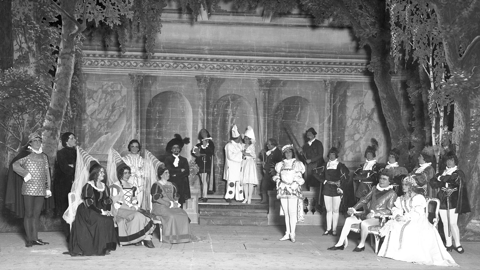Franz von Suppé’s Boccaccio
WEDNESDAY NIGHT AT THE OPERA
8pm Wednesday 24 July
Boccaccio, or The Prince of Palermo is a three-act operetta by Franz von Suppé.
The story comes from The Decameron, written by the real-life Italian author and poet Giovanni Boccaccio. This was made into a play by four Frenchmen, upon which the German libretto by Camillo Walzel and Richard Genée was based. While linked to the Viennese operetta tradition, Suppé’s work is decidedly Italian in style.
Boccaccio premiered at the Carltheater in Vienna on 1 February 1879. It is set in the early Renaissance Florence of 1331, where the poet Boccaccio’s scandalous novellas cause a division between his female admirers and their jealous husbands. The husbands plot to get rid of Boccaccio by chasing him out of the city. Boccaccio foils their plans by finding favour with the Duke and winning the hand of his daughter, Fiametta.
Born in 1819 to upper-class Austrian parents, Suppé was raised in Italy. Donizetti, a distant relative, actively supported Suppé’s musical education. His musical training qualified him to become a composer of more serious works—symphonies and serious operas—but he chose lighter works and became the Viennese Jacques Offenbach, composing more than 200 stage works.
His greatest successes were Gervinus, Flotte Bursche, Fatinitza and his masterpiece Boccaccio—works performed no less than 100 times after their premieres.
In his later years Suppé did turn to more serious composing, producing symphonies, string quartets and, in 1855, a Requiem.
Suppé is known today for his overtures, especially Light Cavalry and Poet and Peasant.
—Alan de Niese
This article is taken from the July issue of On Air—the subscriber magazine of the station you love to listen to! Subscribe to 3MBS and you’ll receive eleven issues delivered straight to your inbox or letterbox over the year.
